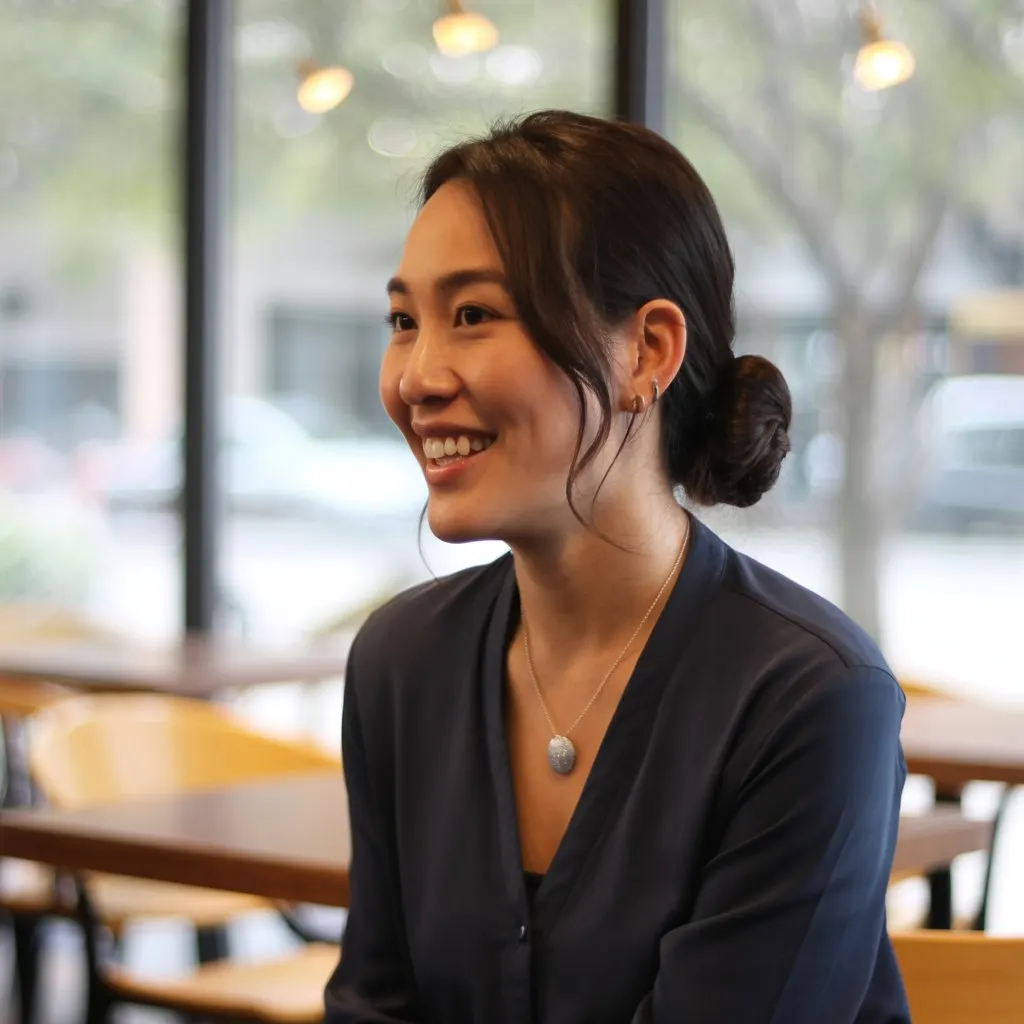The grocery store used to be one of my biggest anxiety triggers. Standing in the cereal aisle, heart racing, wondering why a simple shopping trip felt so overwhelming. Looking back now, there was something I didn’t understand then: what we put into our bodies has a profound impact on what happens in our minds.
For years, anxiety felt like this mysterious force that showed up uninvited, disrupting my peace without warning. But as someone who’s walked through the valley of panic attacks and sleepless nights, discovering the connection between food and anxiety was like finding a missing puzzle piece. It wasn’t the complete solution—therapy, support, and community all played crucial roles—but nutrition became a powerful tool in my healing toolkit.
Here’s something remarkable: our bodies are designed with incredible wisdom. When we nourish them well, we’re actually partnering with that inherent design for our wellbeing. Taking care of this body isn’t just about physical health—it’s about honoring the gift of life we’ve been given.
The Food-Anxiety Connection Nobody Talks About
You know that jittery feeling after your third cup of coffee? Or the brain fog that settles in after lunch when you’ve loaded up on refined carbs? These aren’t random sensations—they’re your body communicating something important about how food affects your nervous system.
The gut-brain axis is real, and it’s fascinating. Scientists now understand that about 90% of our serotonin (that feel-good neurotransmitter we desperately need when anxiety strikes) is actually produced in the gut. When someone told me this during my recovery journey, something clicked. Maybe those butterflies in the stomach aren’t just a metaphor—maybe our digestive system and emotional state are more connected than we ever realized.
What I’ve learned through both personal experience and extensive research is that certain foods act like kindling on the fire of anxiety, while others are like cool water on inflamed nerves. The difference isn’t always obvious at first, but once you start paying attention, the patterns become clear.
Foods That Help Calm the Anxious Mind
Let me share what changed everything for me. When anxiety had me in its grip, a nutritionist asked me a simple question: “What are you feeding your body when you’re stressed?” Honestly, I was embarrassed to answer. Mostly coffee, processed snacks, and whatever was quickest to grab.
She helped me discover foods that actually support a calmer nervous system, and I want to pass that wisdom on to you.
Magnesium-Rich Foods: Nature’s Tranquilizer
Magnesium deficiency and anxiety often go hand-in-hand, though we rarely make the connection. This mineral plays a crucial role in regulating neurotransmitters and keeping our stress response in check. When anxiety was at its worst, adding magnesium-rich foods made a noticeable difference within weeks.
Dark leafy greens like spinach and Swiss chard became staples in my kitchen. There’s something almost meditative about preparing a simple salad—slowing down, choosing nourishment, taking a moment of gratitude. Almonds, cashews, and pumpkin seeds became my go-to snacks instead of chips and cookies. Black beans, avocados, and dark chocolate (yes, really!) also made regular appearances.
The shift wasn’t overnight, but gradually, those constant muscle tension headaches started easing. My sleep improved. The racing thoughts at 2 AM became less frequent.
Omega-3 Fatty Acids: Brain Food That Actually Works
If magnesium is nature’s tranquilizer, omega-3s are the brain’s best friend. These essential fatty acids reduce inflammation throughout the body, including in the brain, where chronic inflammation can worsen anxiety and depression.
Fatty fish like salmon, mackerel, and sardines are incredible sources. Now, I’ll be honest—sardines took some getting used to. But wild-caught salmon became a Friday night tradition in our home. There’s something about preparing a meal mindfully, maybe lighting a candle, and remembering that caring for this body matters.
For those who don’t eat fish, walnuts, chia seeds, and flaxseeds offer plant-based omega-3s. Sprinkling ground flaxseed into morning oatmeal or smoothies became one of those small habits that added up to significant change.
Complex Carbohydrates: Steady Energy, Steady Nerves
Here’s where conventional diet advice sometimes misses the mark. Carbs aren’t the enemy—refined, processed carbs are. Our brains need glucose to function, and complex carbohydrates provide that steady supply without the blood sugar roller coaster that amplifies anxiety.
Whole grains like oatmeal, quinoa, and brown rice became breakfast and lunch staples. Sweet potatoes, with their natural sweetness and fiber content, helped satisfy cravings while keeping blood sugar stable. Even something as simple as whole grain toast with almond butter instead of a sugary pastry made mornings feel less chaotic.
There’s real comfort in wholesome, sustaining food that doesn’t promise a quick high followed by a crash.
Probiotic-Rich Foods: Healing From the Inside
Remember that gut-brain connection? Supporting gut health through probiotic foods became another game-changer. Plain Greek yogurt with berries and a drizzle of honey became my afternoon snack. Kefir, which tastes like drinkable yogurt, packed an even bigger probiotic punch.
Getting adventurous, fermented foods like sauerkraut and kimchi found their way onto my plate. (Fair warning: start small with these—they’re potent!) The goal is nurturing those beneficial bacteria that support both digestive health and mental wellbeing.
Foods Rich in B Vitamins: The Stress-Fighting Squad
B vitamins, particularly B6, B9 (folate), and B12, play essential roles in producing neurotransmitters that regulate mood and stress response. When these run low, anxiety often runs high.
Eggs became a breakfast staple—simple, versatile, and packed with B vitamins. Lean poultry, legumes like lentils and chickpeas, and leafy greens all contributed. What struck me was how whole, unprocessed foods naturally contain what our anxious bodies need most.
Foods That Feed Anxiety (And Why They’re So Tempting)
Now comes the harder truth. Some foods we reach for when stressed actually make anxiety worse. Understanding why helped me make better choices, even when anxiety screamed for comfort food.
Caffeine: The Double-Edged Sword
Coffee and anxiety have a complicated relationship. That morning cup feels essential, especially when anxiety has disrupted sleep. But here’s what nobody tells you: caffeine triggers the same physiological responses as anxiety—increased heart rate, jitteriness, and heightened alertness.
For someone already dealing with a hyperactive nervous system, caffeine is like throwing gasoline on a fire. Reducing from four cups to one made a dramatic difference. Some days, switching to green tea (which has L-theanine to balance the caffeine) felt like a gentler option.
This doesn’t mean complete elimination for everyone, but awareness matters. Notice how your body responds. If that afternoon coffee coincides with increased anxiety, there’s your answer.
Processed Foods and Refined Sugars: The Mood Rollercoaster
Those packaged snacks and sugary treats are engineered to be addictive, but they wreak havoc on blood sugar and mood stability. The quick energy spike feels good initially, then comes the crash—irritability, brain fog, and often intensified anxiety.
White bread, pastries, candy, and most packaged snacks fall into this category. So do sugar-sweetened beverages, which deliver massive doses of refined sugar without any fiber to slow absorption. The resulting blood sugar spike and crash mirrors the adrenaline surge of a panic attack.
Processed foods also tend to be inflammatory, and inflammation affects brain chemistry in ways that worsen anxiety. Plus, they’re often nutrient-poor, meaning your body isn’t getting what it needs to function optimally.
Alcohol: The False Comforter
Wine to “take the edge off” seems like a solution when anxiety is overwhelming. But alcohol is a depressant that disrupts sleep architecture, depletes B vitamins, and can actually increase anxiety the next day—sometimes called “hangxiety.”
This was a tough realization during my healing journey. That evening glass of wine felt like self-care, but it was actually undermining my recovery. Cutting back significantly (and sometimes abstaining completely during high-stress periods) made a noticeable difference in baseline anxiety levels.
Artificial Sweeteners and Food Additives
Aspartame, in particular, has been linked to increased anxiety in susceptible individuals. MSG and certain food dyes can also trigger symptoms in some people. These additives are everywhere in processed foods, another reason to focus on whole, recognizable ingredients.
Practical Steps to Change Your Diet Without Losing Your Mind
Reading about dietary changes can feel overwhelming, especially when anxiety already makes decision-making difficult. Been there. Here’s how to approach this without adding more stress to your plate (pun intended).
Start Small and Be Patient
Don’t overhaul everything at once. Pick one change—maybe adding salmon once a week, or swapping your afternoon coffee for herbal tea. Small wins build momentum and confidence. Remember, this is a journey, not a race.
Meal Planning as a Calming Practice
Sunday afternoons, sitting down with a cup of tea and planning the week’s meals became almost meditative for me. Taking time for even these practical decisions felt like an act of self-care. It turned something potentially stressful into something peaceful.
Stock Your Kitchen for Success
When anxiety hits, you’ll reach for whatever’s convenient. Make the convenient options the healthy ones. Keep nuts, fruits, yogurt, and whole grain crackers easily accessible. Prep vegetables on Sunday so weeknight cooking feels manageable.
Grace Over Perfection
Some days, anxiety wins and you end up eating whatever you can manage. That’s okay. Tomorrow is a fresh start, and that includes grace for imperfect nutrition. One challenging meal doesn’t undo weeks of progress.
Listen to Your Body
Everyone’s body responds differently. Keep a simple food-mood journal for a few weeks. Notice patterns. Does dairy make you feel sluggish? Do eggs settle your nervous stomach? This body is uniquely yours, and learning its signals is an act of self-awareness and self-care.
The Bigger Picture: Food as One Tool Among Many
Here’s what matters most: dietary changes alone won’t cure anxiety. If they could, we wouldn’t need therapy, medication, support systems, or professional help. But nutrition is a powerful tool that works alongside other healing practices.
When blood sugar is stable, coping feels more accessible. When gut health improves, managing intrusive thoughts becomes slightly easier. When inflammation decreases, the body doesn’t constantly send danger signals to an already anxious brain.
These bodies have remarkable capacity for healing when given proper support. Nourishing yourself well isn’t vanity or self-indulgence—it’s taking care of the life you’ve been given.
Moving Forward With Hope and Intention
The path to anxiety relief through dietary changes isn’t linear or perfect. Some weeks you’ll nail it; others, you’ll survive on whatever gets you through. Both are okay. What matters is the general trajectory—small, consistent choices that add up over time.
As you consider these dietary changes, remember that you’re not in this alone. Support exists—whether from friends, family, therapists, or online communities. Reaching out when you need help isn’t weakness; it’s wisdom.
Start where you are. Maybe that’s adding one serving of leafy greens this week. Maybe it’s cutting back one cup of coffee. Maybe it’s simply paying attention to how different foods make you feel. Whatever your starting point, it’s the right one.
Your body has wisdom built into it. When you feed it well, you’re cooperating with that design. And in that cooperation, there’s often surprising peace—the kind that calms racing hearts and quiets worried minds.
Take a deep breath. You’ve got this. One meal, one choice, one day at a time. That’s all anyone can do, and it’s more than enough.




